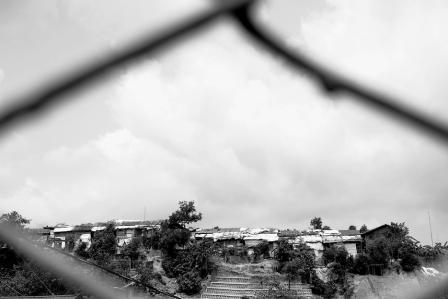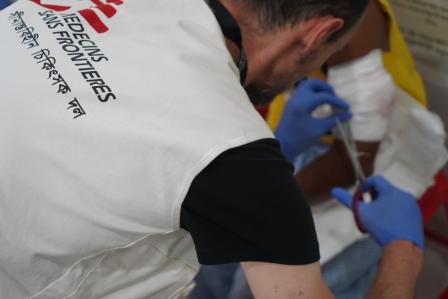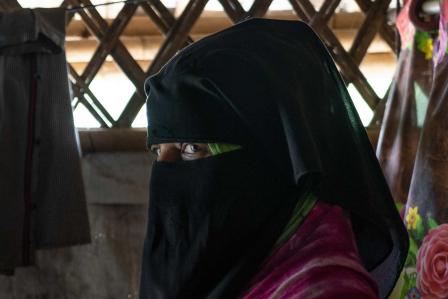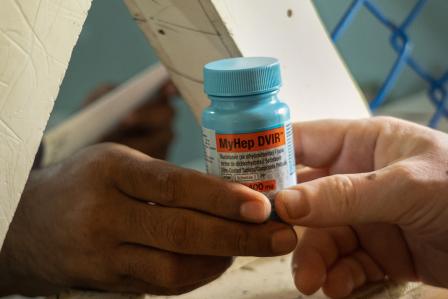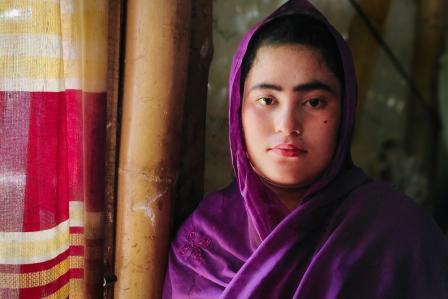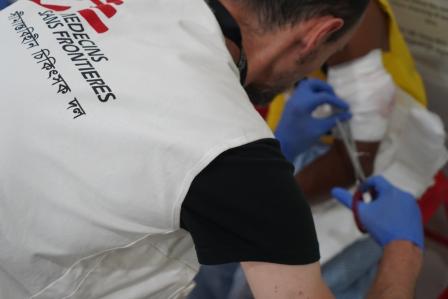On World Refugee Day, the Rohingya yearn for home, safety, and freedom from fear
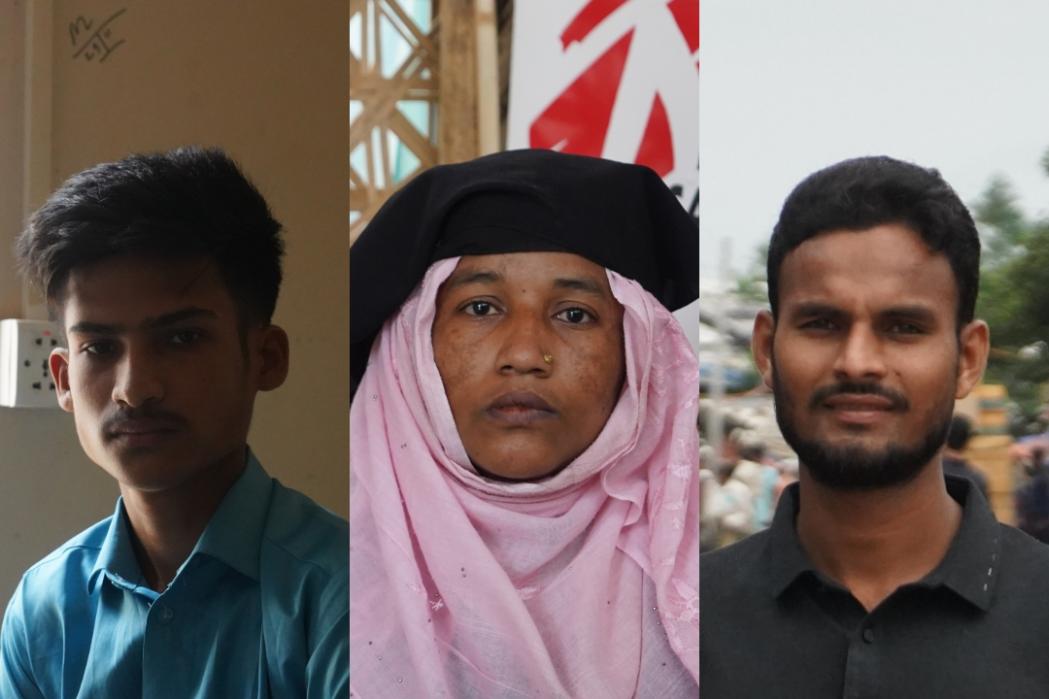
It was in 1982 when they were stripped of their citizenship, subjected to decades of persecution and abuse in Myanmar. In August 2017, violent acts claimed the lives of at least 6,700 Rohingya, and forced over 600,000 to flee Myanmar.
Those who fled undertook perilous journeys over land and sea, landing in countries like Bangladesh, Malaysia, Cambodia, Thailand, and India.
Of the estimated 2 million Rohingya in Southeast Asia, more than half live in fenced camps in Cox's Bazar, Bangladesh—the world's largest displacement camp—while 600,000 endure restricted conditions in Rakhine state.
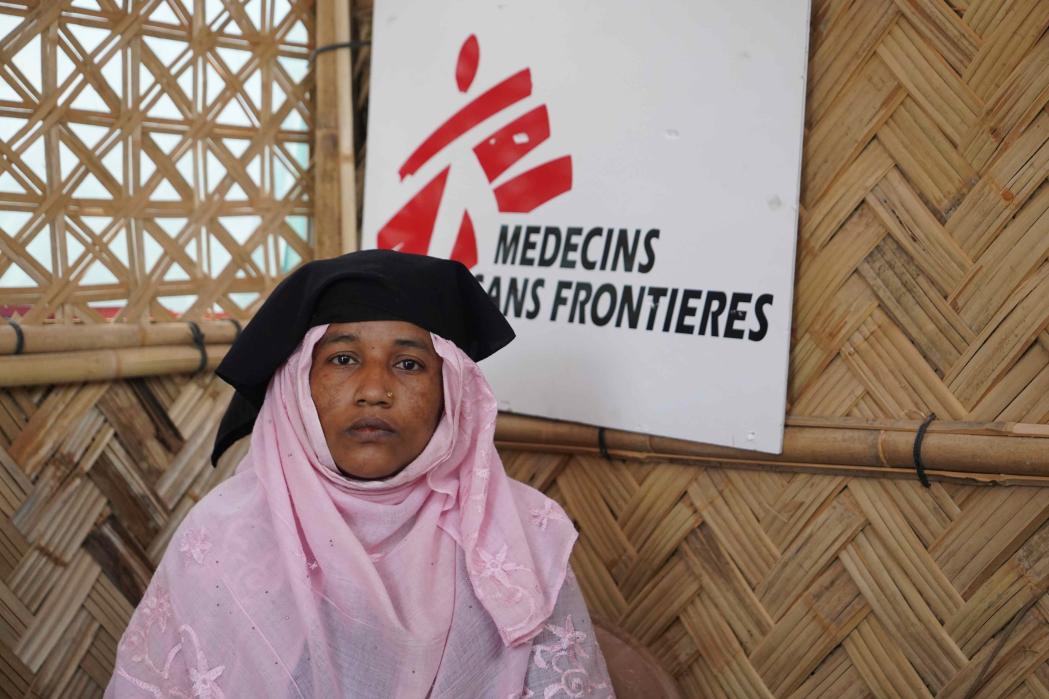
“All I want is a safe place to live, free from fear.”
"My name is Rohima Khatun and I live in Camp 15 in Bangladesh.
Life here is hard. It's been hard ever since I fled violence in Myanmar in 2017. The military attack took everything from me – my husband, my health, and a sense of security. Now, it's just me and my 8-year-old daughter. We're alone, always worried. The atmosphere in the camps is scary, with fights, kidnappings and a constant feeling of unease.
My biggest fear is for my daughter's safety. She can't even go to the learning centre because of the danger. I want so badly for her to have an education, a chance at a better life. Even basic things are a struggle. Getting water means waiting in long lines or venturing out at night, which is terrifying. Food is often scarce, and when my daughter gets sick, affording proper medical care becomes a nightmare. I had to choose between buying food and getting the injection she needed. This shouldn't be a choice any mother has to make.
All I want is a safe place to live, free from fear. A place where my daughter can grow up healthy and have a chance to learn. A place where I can finally feel some peace. The violence in Myanmar stole my family, my home, and my sense of security. But it won't steal my hope. I hope for a future where my daughter can live a life without fear."
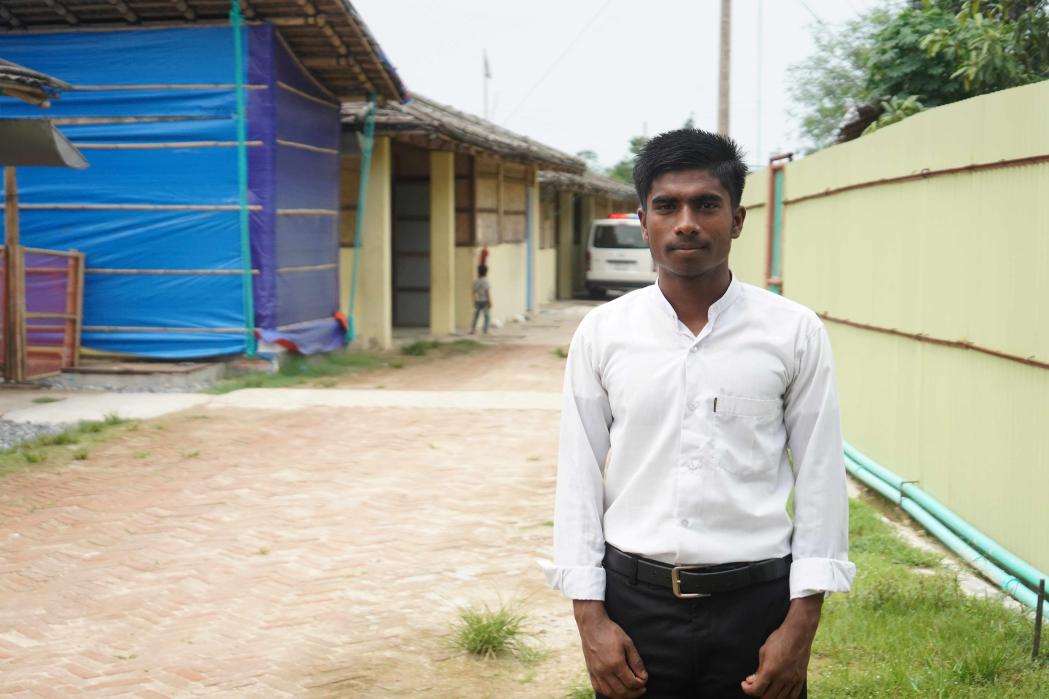
“My identity, my dreams, they're fading with each passing day.”
"My name is Arafat Ullah. I'm 18, a student in grade 12.
Life here is suffocating. We're crammed together, hundreds in spaces meant for a handful. Our teachers, Rohingya who fled with us from Myanmar, do their best, but it's not enough. Back home education was a path to a better future. Here, it's a dead end after grade 12. No universities, no chance to be a doctor, an engineer, anything I ever dreamed of. We're prisoners. They tell us we can't leave, that we're not welcome outside the camp. It's a constant reminder that we don't belong.
Food is scarce. We depend on rations, rice and lentils, barely enough to survive. Water is even harder to get. Broken pumps mean long waits, and illness [from unclean water] can strike any time. MSF's clinic is a lifeline, but the queues are endless, and the fear of gangs at night keeps many people from seeking help when they need it most.
This isn't life. It's an existence filled with darkness, and a stolen future. All I want are the basic rights everyone deserves – food, water, a roof over my head, a chance to learn, to heal, to become who I was meant to be. We belong in Myanmar. There, we could be doctors, teachers, business owners. Here, we're nothing. My identity, my dreams, they're fading with each passing day. I just want to go home. I want to be a doctor. Is that too much to ask?"
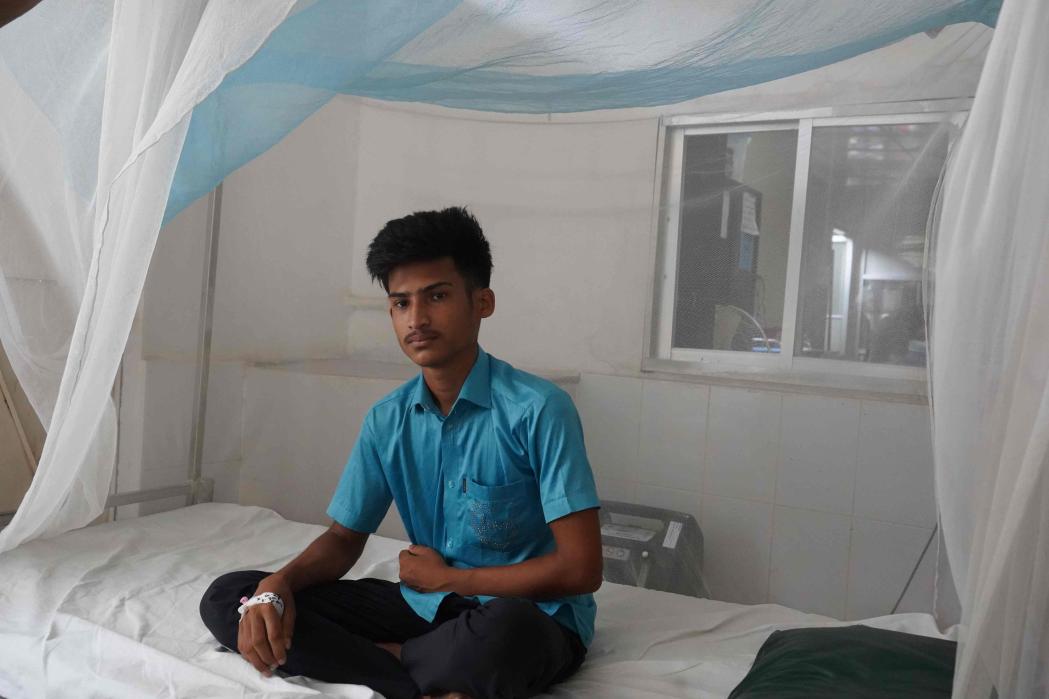
“Life back then wasn't perfect – education was limited, but at least we had a proper home.”
"My name is Zubair Nur. I'm 17 and live in Kutupalong camp with my mom, two sisters, and a brother. My dad left when I was 10, and we fled Myanmar that same year.
Life back then wasn't perfect – education was limited, but at least we had a proper home, a simple clay house that was ours. Here in the camps, things are alright. We get aid, and some teachers keep our history alive, but they charge for lessons. I can't afford that, so I had to find work in Bandarban. Then came the dengue. Suddenly, I was in the Bandarban local hospital, my hard-earned money vanishing as fast as my health.
I dream of being a teacher, but how can I teach if I can't learn myself? Here, with no support for my education, my only option is helping my brother with odd jobs to make ends meet. At least the camps have decent water and sanitation. The food's alright too, no complaints there. Going back to Myanmar feels impossible right now. The fighting situation is not good there. The one thing I miss most? The food. The drinks, the juices, the cakes – all those tastes of home that are gone."
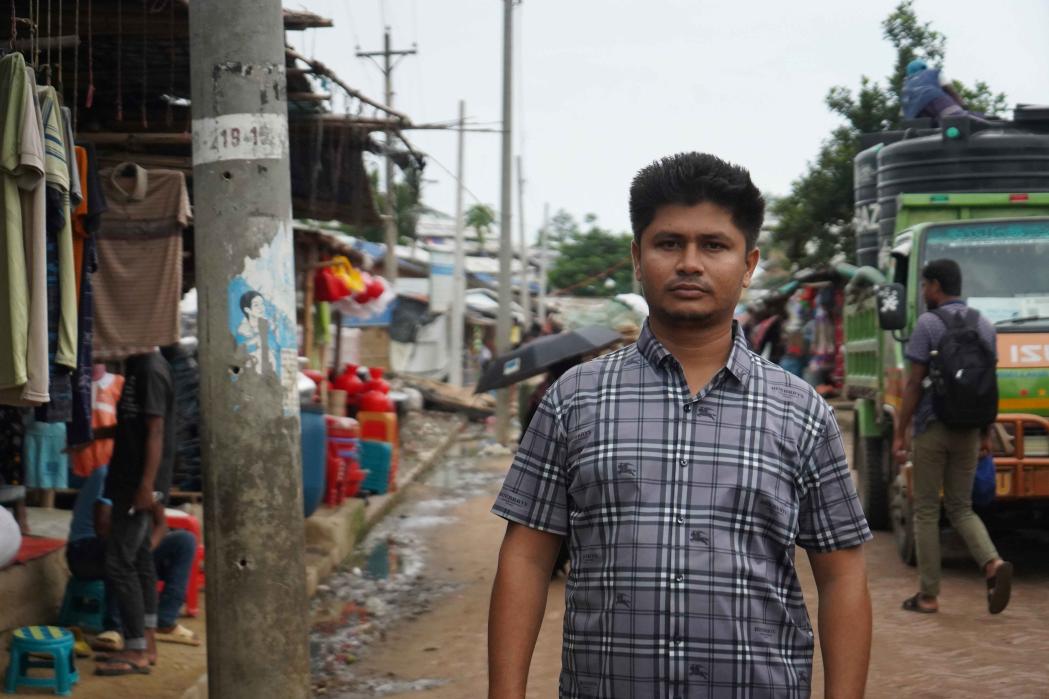
“I yearn for a home where I am safe, where I have basic rights.”
"My name is Mohammad Ayas. I'm 29 years old.
The memories of fleeing Myanmar are still raw. The violence started in August 2017, the military burning our homes, killing whoever they found. We fled with my family, a desperate scramble from village to village until we crossed the Naf River into Bangladesh. It was a terrifying journey. The boat ride was a fortune we barely scraped together, leaving behind everything – our cattle, our farms, a lifetime of memories turned to ash. I saw people die, their dreams extinguished as quickly as their homes.
Bangladesh was a lifeline. Exhausted, scared, but finally safe. They welcomed us with food and water, a kindness that still brings tears to my eyes. We were moved to the camps, a place we hoped to stay for just a few months. Seven years later, here we are. The camps are a constant struggle. Hilly terrain, poor sanitation, limited water – a far cry from a normal life. We're trapped, confined, our movements restricted by law enforcement who brand us "Rohingya" like a curse. Food rations aren't enough. We need vegetables, meat, clothes, a chance to earn money for a decent life. Healthcare is a constant battle – overcrowded facilities with criteria's that turn sick people away. My own health worries me, but waiting means risking my condition worsening.
My son is one year old. My father's dream of me becoming a doctor died in Myanmar. Here, in this camp, my own dreams feel just as distant. How can I offer my son a future when mine is so bleak? I yearn for home. But I yearn for a home where I am safe, where I have basic rights, where my son won't be another refugee. I want to go back with dignity, as a citizen, not a pariah.
All I ask is for a chance. A chance for education, for healthcare, for a life free from confinement. The world can change our fate. Negotiate, advocate, help us resettle somewhere safe. We just want to live with dignity, like any human being deserves. We miss our lives, our homes, our schools. Give us back our hope."
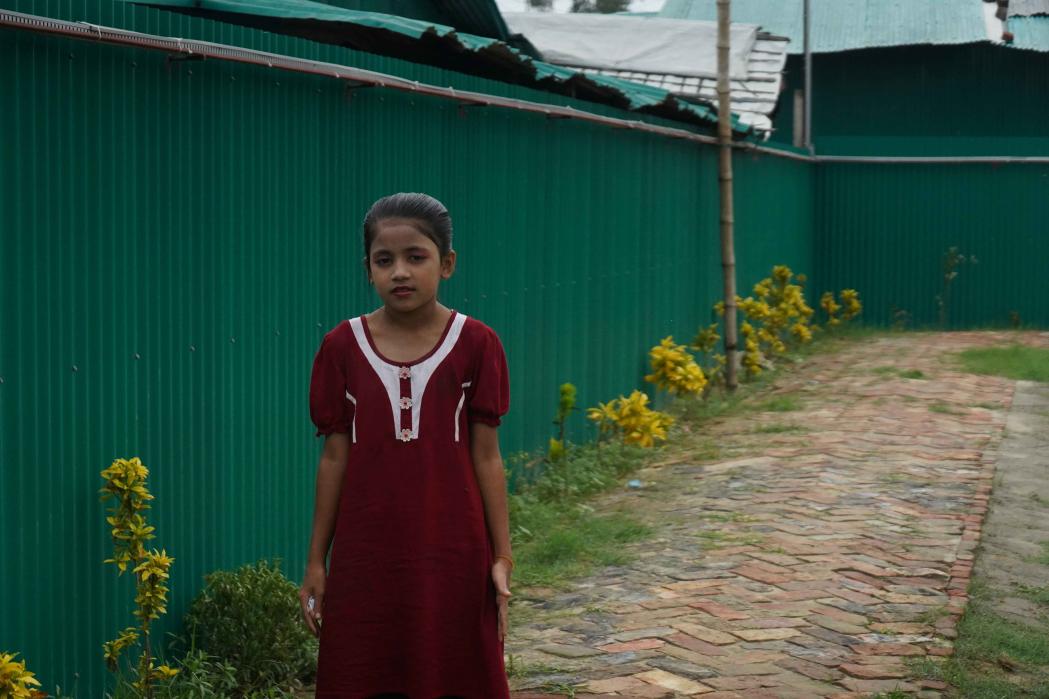
“Proper education here feels out of reach though, and the fear of being snatched always hangs over me.”
"My name is Kismat Ara. I'm 11 years old and a student in grade 3 at Mukti School.
Myanmar is just a blur of memories – my dad's little shop close by, the flames licking at it from grandpa's house across the street. Our home went up in flames. These are the few things I remember from Myanmar. We fled with my parents and siblings, escaping the fighting that seemed to follow us even here to the camps. I remember the fear when my uncle was abducted, the relief when he finally came back. Our house in Myanmar was wood and warmth, with a garden for playing. Here, it's just a shelter, not a home. There's nowhere to play freely, even a simple game gets shut down.
My dream is to become a Quran Hafez. Proper education here feels out of reach though, and the fear of being snatched always hangs over me. My parents never let me wander far. But I won't let that fear stop me. I want to be a teacher, to share the knowledge of my religion with other children. One day, if it's safe, I want to go back to Myanmar. Back to a place that is home for my family and my community."
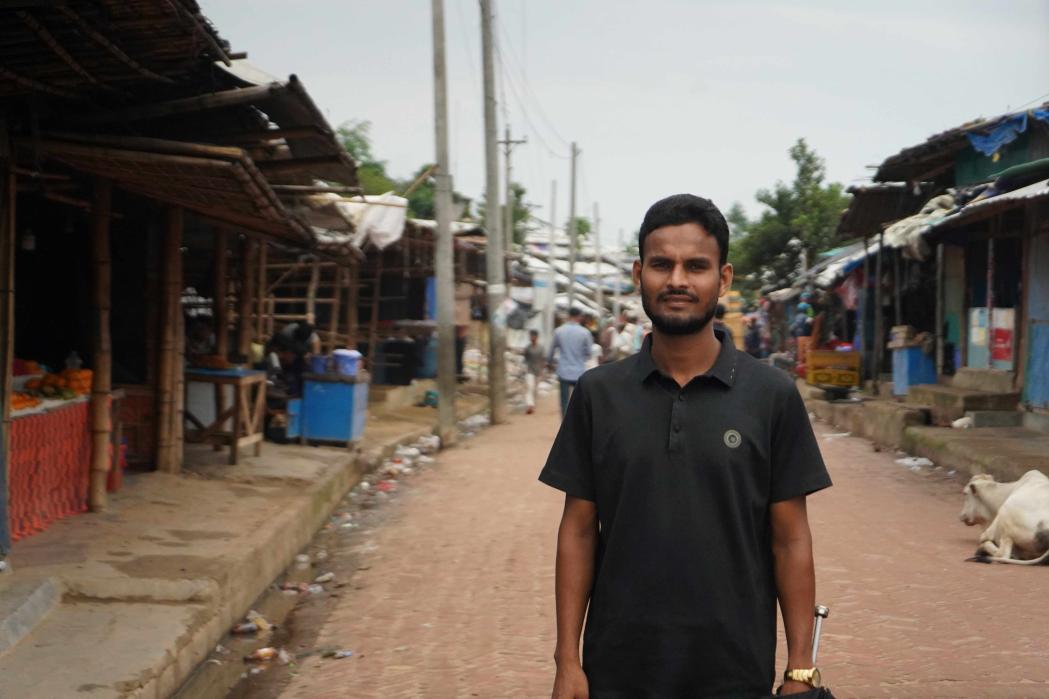
“Challenges pile up – no proper education, no decent jobs, barely enough food to survive.”
"My name is Solim Ullah, 22 years old, stuck in this open prison of a camp in Balukhali.
Maungdaw was my home, but here, fear is our constant companion. Our movements are controlled, dictating where we can go. Our area is limited and marked with barbed wire. Education? A distant dream. There are armed groups in the camp who constantly threaten us. Abduction, beatings – their way or no way. We just want to live in peace, but "peace" seems like a foreign word here.
Challenges pile up – no proper education, no decent jobs, barely enough food to survive. Rations might have increased, but so have food prices. 2,200 taka for a bag of rice? How can we afford a balanced diet on that? Water's okay, at least in our camp. But waste management? A disaster. Volunteers stretched thin, schedules ignored, trash overflowing and making us sick. We're tired of this cramped existence. We just want to be free.
Myanmar. That's home, 15 years of my life. I yearn to go back. Even with its limitations, at least there I could get an education. Here, grade 11 is the ceiling. The world is full of possibilities – doctors, engineers, businessmen – but a proper education system is the key we lack. I miss school, the laughter with friends. Here, it's just work, worry, and a constant longing for something more.
As the eldest of seven siblings, the responsibility falls on me. We fled in 2017, a desperate trek through the mountains to escape the Myanmar military. Four grueling days to reach Bangladesh, a country that opened its arms to us. We're grateful, but this camp isn't a life. It's an open prison. Here life is a yearning for a future where education unlocks our potential, where freedom lets us dream again."


